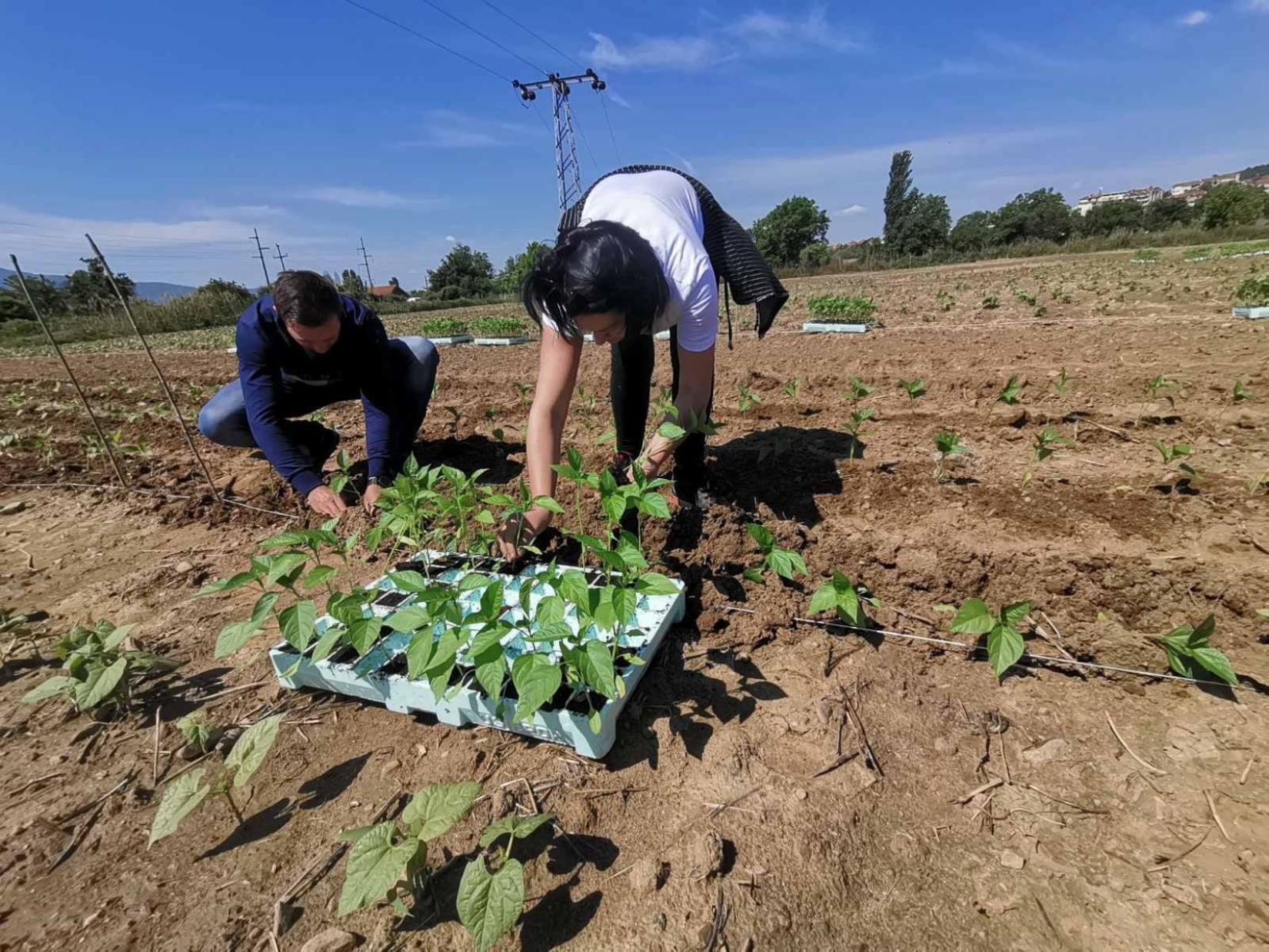Increasing climate resilience in Macedonian agriculture through quality seed production
29 September 2021
FAO supported establishment of demonstration sites in Kochani and Skopje for production, testing and multiplication of quality seed materials from several strategic crops, including beans, pepper and cereals.

29 September 2021, Kochani, North Macedonia. Climate change has a serious impact on Macedonian agriculture through water scarcity, reduced yields, damages to agricultural production, all of which affect food security and livelihoods of the agriculture-dependent rural population.
The limited access to agricultural input materials, such as quality of seeds and capacities to produce, store and use them, further aggravates the agriculture production efficiency and resilience, especially that of small farmers.
To address country’s growing demand for high-quality and climate-resilient seeds, FAO supports the Government of North Macedonia to enhance the country’s seed system by improving the domestic production of high-quality and climate-tolerant seeds of strategic crops and building the national capacities to ensure proper seed supply for farmers.
In close cooperation with the Institute of Agriculture, Ss. Cyril and Methodius University in Skopje, FAO supported establishment of demonstration sites in Kochani and Skopje for production, testing and multiplication of quality seed materials from several strategic crops, including beans, pepper and cereals.
A field event was organized today at the Institute of Agriculture’s demonstration fields in Kochani, to present the implemented project activities for quality seed production.
At the opening of the event, Trajan Dimkovski, Deputy Minister for Agriculture, Forestry and Water Economy, underlined the importance of this project for strengthening the country capacities on climate-resilient seed system for enhancing climate adaptation in agriculture and food security. The Ministry is involved in the assessment of the national policies for seed production, distribution and in improving the seeds certification process for quality control. In this context, the Deputy Minister expects that with FAO support, the Ministry will soon prepare and submit for Government approval a national strategic document to promote sustainable and climate resilient domestic seed system.
According to the Viktor Gjamovski, Director of the Institute of Agriculture, the occurrence of climate change and their harmful impact on agriculture imposes the need to introduce adaptive measures and technologies in crop production. Therefore, the Institute of Agriculture in cooperation with FAO in the frame of this project, will contribute in development of new research opportunities to improve seed production in order to contribute to better adaptation of agriculture to the growing negative implications caused by climate change.
Silvana Manasievska Simikj, FAO National Seed Systems consultant and project coordinator stressed that high-quality and tolerant national varieties, sound policies related to the national seed system and capacities to breed new, and maintain local varieties – is an important step in support to transforming food systems in a sustainable way, enhancing food security, enhancing climate change adaptation in agriculture and improving competitiveness.
The established demonstration trials in Kochani and Skopje helped assessing the impact of climate change on agricultural production under different conditions, as well as the effects of applying various agro-technical measures with special attention to protection and nutrition of these crops, as important preconditions for sustainable agricultural production. As a result of these activities, a quality seed material will be obtained and made available for distribution to interested farmers.
In addition, during the vegetation season, 45 farmers, agricultural producers, representatives of seed farms and cooperatives were trained on how to select, test and grow high-quality seeds for each crop, in order achieve optimal yields under a changing climate.
In addition to the above-mentioned activities, FAO will support developing a national seed portfolio and methodologies for testing new seed varieties, technical trainings for national professionals on seed certification and laboratory testing for quality control, as well as establishing a regional network to support regional cooperation on seed systems and climate resilience.





